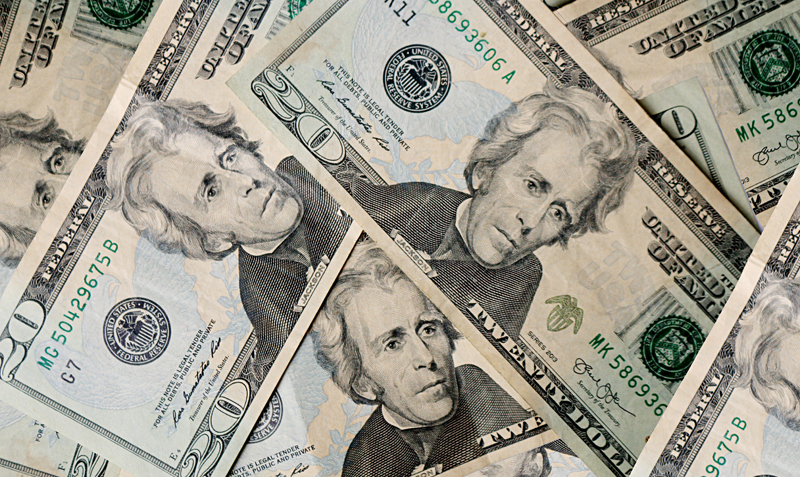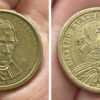“I t is a lucrative endeavor, and one that remains largely unknown outside the drug agency. DEA units assigned to patrol 15 of the nation’s busiest airports seized more than $209 million in cash from at least 5,200 people over the past decade after concluding the money was linked to drug trafficking, according to Justice Department records. Most of the money was passed on to local police departments that lend officers to assist the drug agency.”
The above quote is an excerpt from this disturbing investigative report written by Brad Heath for USA TODAY, which exposes how federal drug agents of the United States regularly mine the travel information of American citizens from most major airlines to profile people who might be ferrying money for narcotics traffickers — though they almost never use what they learn to make arrests or build criminal cases. “Instead, that targeting has helped the Drug Enforcement Administration seize a small fortune in cash.”
Millions of Dollars Seized by Drug Enforcement Agency Mining Travel Records of Americans
If this sounds familiar to you as a reader of The Gate, it should: back on June 9 of this year, I posted this article pertaining to a practice conducted by law enforcement officers called civil asset forfeiture, where your property is “guilty” until you prove it innocent. Civil asset forfeiture has become a profit center for local police departments throughout the United States…
…but that is where the articles somewhat differ: law enforcement officers of local jurisdictions were seizing cash from unsuspecting motorists on highways; whereas the article by Brad Heath highlights a federal agency of the United States performing similar nefarious procedures on trains operated by Amtrak and at airports around the country — and the reasons to conduct such searches and questioning of passengers could be as unassuming and innocent as simply paying for an airplane ticket using cash or traveling on a one-way itinerary to a different state.
“In most cases, records show the agents gave the suspected couriers a receipt for the cash — sometimes totaling $50,000 or more, stuffed into suitcases or socks — and sent them on their way without ever charging them with a crime.”
As much as $52.1 million dollars was seized at Los Angeles International Airport alone as of the middle of 2015, according to the article.
The cases outlined in the article by Brad Heath — many of them in the thousands or tens of thousand of dollars — offer evidence of the extensive reach of the program. “Filings show agents were able to profile passengers on Amtrak and nearly every major U.S. airline, often without the companies’ consent. ‘We won’t release that information without a subpoena,’ American Airlines spokesman Ross Feinstein said.”
Feinstein would know better than most people, as he was the press secretary for the Transportation Security Administration for two years — as well as a spokesman for the Immigrations and Customs Enforcement of the United States prior to his current role as senior manager of the corporate communications department at American Airlines.
According to this article written and compiled by Michael Sallah, Robert O’Harrow Jr., Steven Rich and Gabe Silverman for The Washington Post, “There have been 61,998 cash seizures made on highways and elsewhere since 9/11 without search warrants or indictments through the Equitable Sharing Program, totaling more than $2.5 billion. State and local authorities kept more than $1.7 billion of that while Justice, Homeland Security and other federal agencies received $800 million. Half of the seizures were below $8,800.”
The Problems With Fighting Abuse of Civil Asset Forfeiture
Civil asset forfeiture is a legal process in which law enforcement officers may — without permission or advance notice — seize assets from anyone who is suspected of being involved with a crime or illegal activity; and the owners of the property which is taken are not necessarily required to be charged with any wrongdoing.
If you happen to be the target of obvious abuse of civil asset forfeiture by law enforcement, you could challenge it — and the odds of you being successful of having your assets returned to you is 41 percent…
…but be prepared to spend more than a year of your time going through the legal process — as well as the costs of implementing legal action against the government, which may not be worth your time and money…
…and unscrupulous law enforcement officers might count on just that — never mind that you will most likely be required to sign an agreement to indemnify law enforcement officers from being sued by you.
“I have always wondered how such a blatant violation of the US constitution can be practiced on such a massive scale, and why noone has put a stop to it”, Phoenix — who is a reader of The Gate — posted in the Comments section and provided a link to this video pertaining to the topic of civil forfeiture from Last Week Tonight with John Oliver.
Summary
You will most likely not be a target of abuse of civil asset forfeiture — which can occur during your travels — but one way to obviously attempt to avoid that from happening to you is to simply not commit a crime, infraction or violation of the law…
…and even that may not be enough to stop a rogue law enforcement officer from committing an act which is equivalent to legally stealing property from you.
As I advised in this recent article pertaining to 14 Tips on How You Can Prevent Theft in Hotels and Aboard Airplanes, “If you can, separate your valuables — such as cash or jewelry — and do not keep them consolidated in one place. This way, if anything is stolen, the chances of all of your valuable items being stoled are decreased. Better yet, never carry any item which you cannot bear to lose — rather, leave it secured at home.” This is the single best way to prevent theft — whether illegally by a criminal or legally by a corrupt law enforcement officer.
In the meantime, I maintain the same opinion which I stated in the other article: the policies and procedures of civil asset forfeiture by law enforcement agencies in the United States must be revised to punish the actual criminals to whom they were intended and not be abused for the purpose of easy revenue stolen from victims under the guise of official legal activity…
…but as long as official agencies at all levels of government — who are supposed to be serving us — keep profiting from what is little more than a lucrative shakedown of mostly innocent people, they will continue to be permitted to engage in activities which would otherwise be considered morally reprehensible and technically against the law; and it is a shame that there is one more unnecessary item to add to a list of parts of travel with which to be needlessly and unnecessarily concerned.
Could you be next?
Photograph ©2016 by Brian Cohen.

